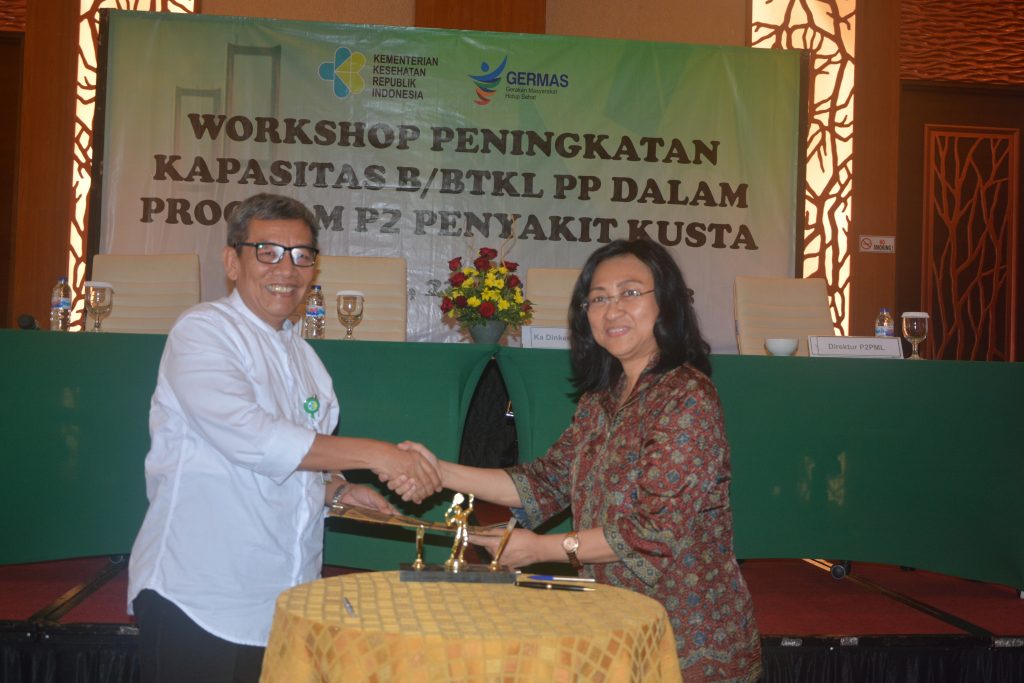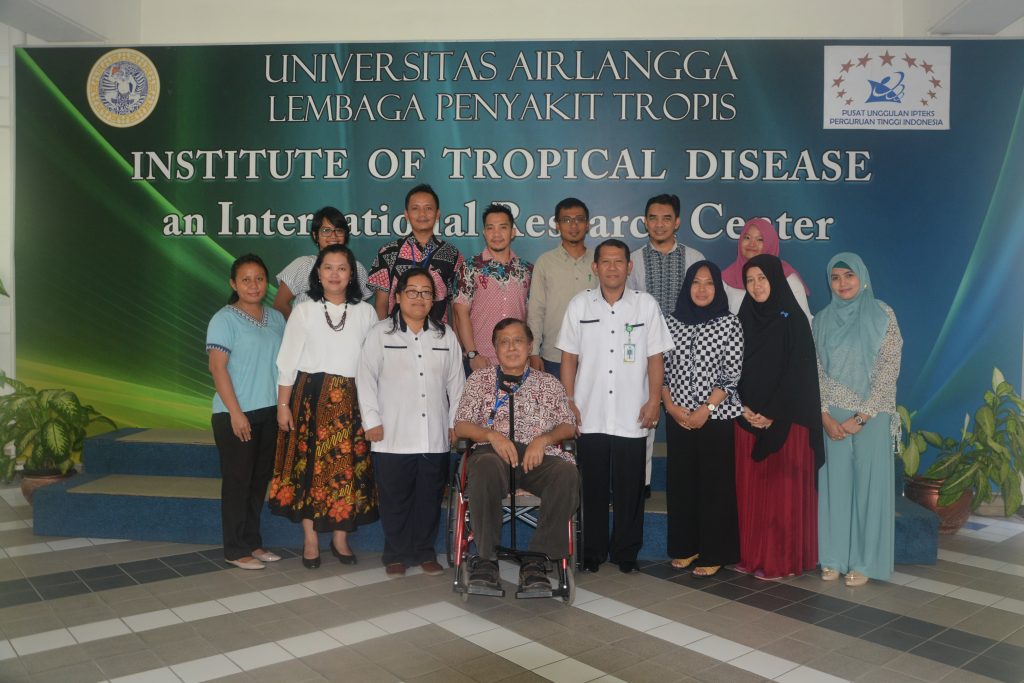{:en}Indonesia aims to reach the global leprosy elimination status by 2019. Currently not only new leprosy cases prevent this to happen, but also the emergence of relapse cases suspected to be caused by drug-resistant leprosy pathogen M. leprae . BBTKL as the disease control and research unit of Indonesian Ministry of Health (Kemenkes) has appointed representatives from different parts of Indonesia, to further understand drug resistance mechanism in M. leprae through biomolecular research techniques as recommended by WHO. As a leading tropical disease research institution in Indonesia associated with many leprosy experts, the Leprosy Study Group of ITD Universitas Airlangga was chosen to host the biomolecular technique workshop on leprosy drug resistance detection for medical laboratory scientists of BBTKL-PP branches from Batam, Medan, Palembang, Jakarta, Jogjakarta, Manado, Makassar, and Ambon.

Professor Maria Inge Lusida as the director of ITD Universitas Airlangga attended the official opening ceremony of the event held at the Swiss-bel Inn Hotel Manyar – Surabaya and signed Memorandum of Understanding (MoU) in front of the government officials and participants. There she emphasized that the aim of the workshop was to provide a better insight to the participants about what leprosy is, how to collect sample from patients and store it for research purposes, how to classify the disease based on the Bacterial and Morphological Index (BI/MI), as well as introducing basic biomolecular research method involved in detecting drug-resistant Mycobacterium leprae in the sample. Prior to the hands-on laboratory workshop, participants received lectures from Professor Indropo Agusni and Dr. Cita Rosita who are both leprologists and the head of the Leprosy Laboratory in ITD Universitas Airlangga. Some part of the workshop took place at the Dr. Soetomo General Hospital for the sample collection workshop, where participants can also observe Professor Indropo Agusni directly examine leprosy patient for clinical signs and demonstrate how samples were collected for further process in ITD Laboratory. Participants were generally enthusiastic as the whole workshop experience was a first time for most of them.


Profesor Maria Inge Lusida selaku direktur dari ITD Universitas Airlangga, didepan seluruh peserta workshop beserta pejabat yang berwenang, menandatangani perjanjian Memorandum of Understanding (MoU) dalam acara pembukaan resmi yang di gelar di Swiss-bel Inn Hotel Manyar Surabaya. Dalam pidatonya, beliau berkesempatan untuk menekankan tujuan akhir dari penelitian ini yaitu agar dapat memanfaatkan teknologi terkini untuk mendeteksi resistensi terhadap obat kusta, sesuai dengan pedoman yang telah dianjurkan WHO. Sebelum rangkaian workshop berlangsung, peserta juga berkesempatan untuk mendapatkan materi langsung dari para ahli leprologis ternama yang juga merupakan pimpinan dari kelompok studi Leprosy di ITD Universitas Airlangga, Professor Indropo Agusni dan Dr. Cita Rosita, Sp.KK(K). Dalam workshop ini, peserta mendapatkan pelatihan mengenai cara pengambilan dan penyimpanan sampel yang benar, yang di lakukan langsung di Poli Spesialis Kulit dan Kelamin RS Dr. Soetomo Surabaya. Pelatihan teknik biologi molekuler dilakukan di Laboratorium Leprosy ITD Universitas Airlangga selama 3 hari penuh mulai tanggal 25-27 April 2018. Seluruh peserta tampak terkesan dan sangat antusias selama berjalannya acara, karena kegiatan ini adalah yang pertama kalinya bagi sebagian besar dari mereka. Utamanya saat mereka menyaksikan sendiri bagaimana Prof. Indropo Agusni berinteraksi dan melakukan observasi terhadap penderita kusta.


